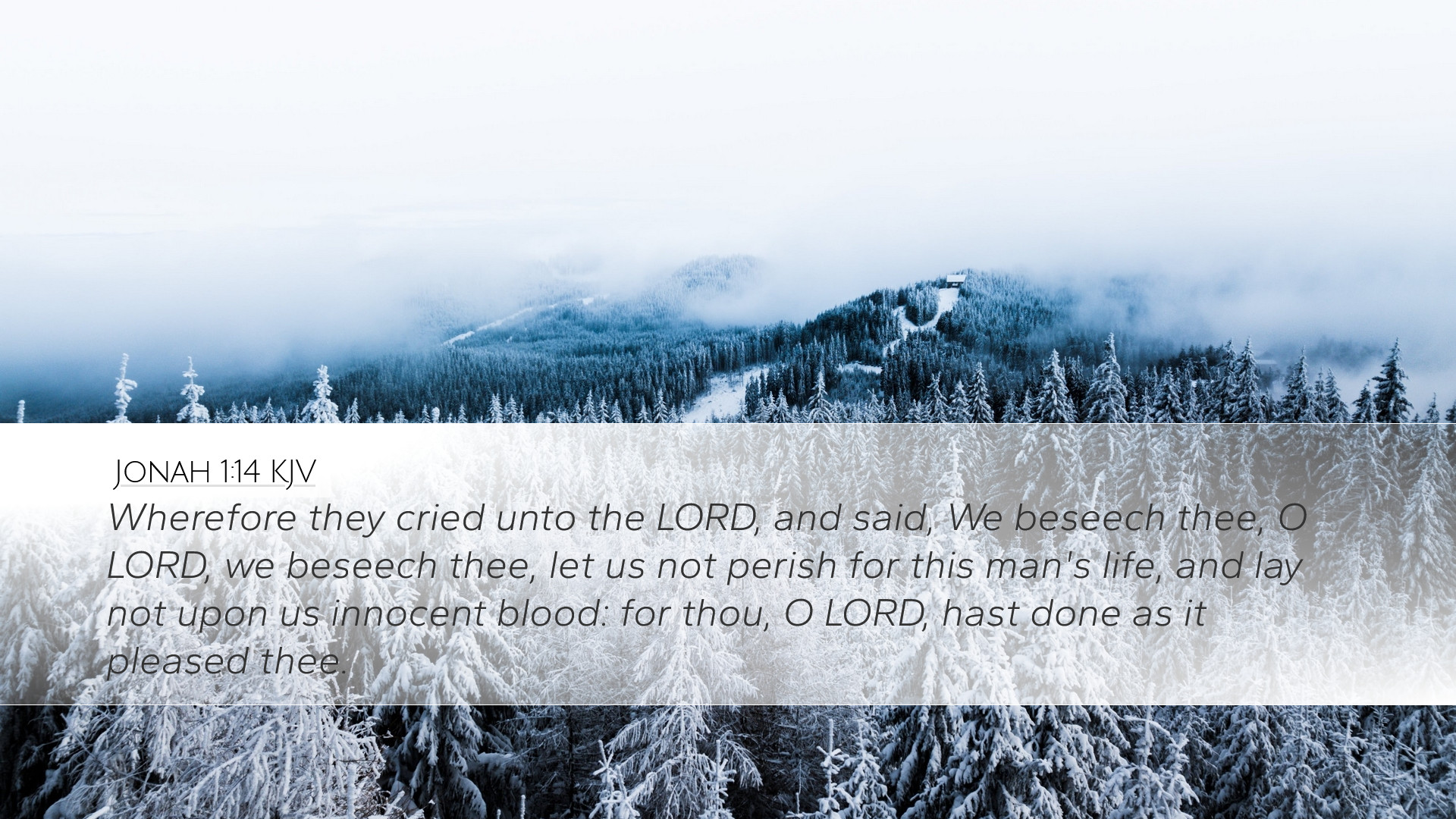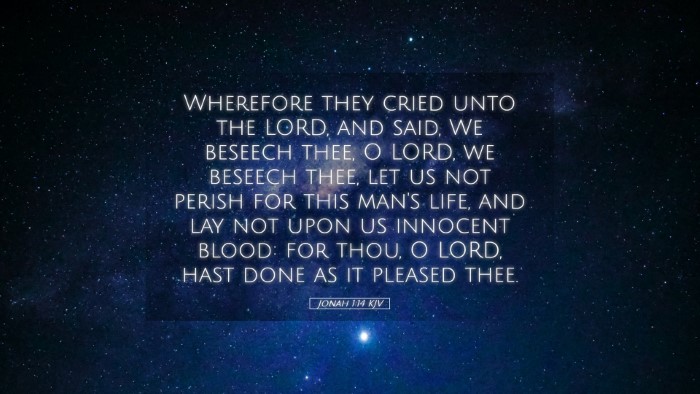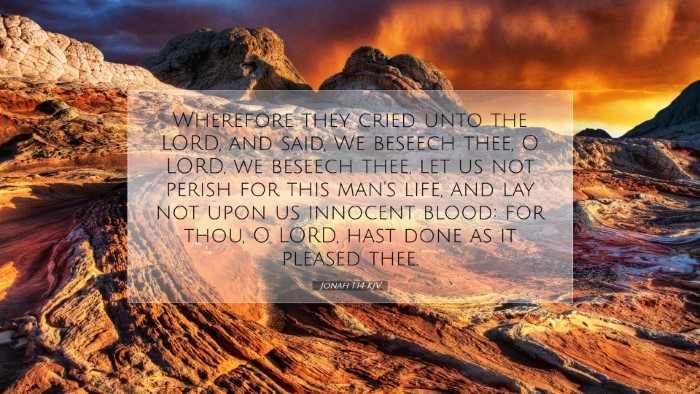Old Testament
Genesis Exodus Leviticus Numbers Deuteronomy Joshua Judges Ruth 1 Samuel 2 Samuel 1 Kings 2 Kings 1 Chronicles 2 Chronicles Ezra Nehemiah Esther Job Psalms Proverbs Ecclesiastes Song of Solomon Isaiah Jeremiah Lamentations Ezekiel Daniel Hosea Joel Amos Obadiah Jonah Micah Nahum Habakkuk Zephaniah Haggai Zechariah MalachiJonah 1:14
Jonah 1:14 KJV
Wherefore they cried unto the LORD, and said, We beseech thee, O LORD, we beseech thee, let us not perish for this man's life, and lay not upon us innocent blood: for thou, O LORD, hast done as it pleased thee.
Jonah 1:14 Bible Commentary
Commentary on Jonah 1:14
Jonah 1:14 tells us:
"Therefore they cried out to the LORD, and said, 'We pray, O LORD, please do not let us perish for this man's life, and do not charge us with innocent blood; for You, O LORD, have done as it pleased You.'" (NKJV)
Introduction
In this profound moment from the Book of Jonah, we observe the mariners’ desperate plea as they confront a relentless storm, ultimately realizing that Jonah's disobedience has invoked God's fury upon them. This verse encapsulates the tension between divine sovereignty and human responsibility, highlighting themes of prayer, divine providence, and the complexity of sin.
Contextual Background
Before delving into the commentary, it is essential to understand the context of Jonah’s narrative. Jonah, a prophet of God, is instructed to go to Nineveh to preach repentance but instead flees to Tarshish. As a consequence of his rebellion, God sends a mighty storm, threatening the ship he is on, which leads the sailors to seek a remedy to their plight.
Commentary Insights
Prayer of the Mariners
Matthew Henry observes that the mariners, initially depicted as pagans, demonstrate a striking sense of urgency and sincerity in their prayer. When faced with life-threatening danger, they turn to the God of Israel. This act of prayer signifies a profound moment of realization for them, as they seek to avert the consequences of Jonah's actions.
Recognition of Divine Sovereignty
Albert Barnes emphasizes that their plea underscores an acknowledgment of God’s sovereignty. The mariners connect their dire situation directly with Jonah’s disobedience to God’s command. They implore God not to hold them accountable for the actions of another, showcasing a deep understanding of divine justice, which resonates throughout Scripture.
Fear and Responsibility
Adam Clarke notes the fear present in their words, reflecting their awareness of the implications of invoking divine wrath. They request not to perish, indicating their recognition that their lives are intricately linked with the consequences of Jonah’s rebellious spirit. This moment underscores a critical biblical theme: the interconnectedness of human actions and their impact on others.
The Nature of Sin and Injustice
The petition to God not to charge them with "innocent blood" speaks volumes about their moral compass. Henry suggests that while they are not innocent in their own displacement, they acknowledge Jonah’s guilt. This highlights the nature of sin: how one individual's rebellion can lead to widespread repercussions. This theme resonates with broader scriptural narratives where collective consequences stem from personal sin.
Divine Mercy and Justice
From a theological perspective, this verse wrestles with the duality of God's mercy and justice. Barnes discusses how the sailors’ plea illustrates their hope for mercy in the face of their new understanding of God. It brings to light the idea that even in the face of calamity, there is an opportunity for divine grace. The sailors, echoed in their humility, beseech God for a reprieve, displaying a profound moment of penitence.
Application for Today
For pastors and theologians today, Jonah 1:14 serves as a powerful reflection on the nature of corporate and individual sin. The response of the mariners invites a discussion on accountability in community dynamics, showing how one person's wrongdoing can affect many. This serves as a caution but also an opportunity to bring the gospel’s message of repentance and restoration to the forefront.
Conclusion
In conclusion, Jonah 1:14 encapsulates a moment of profound realization for the sailors, revealing the depths of their despair and their understanding of the principles of divine justice and mercy. Through the sobering dialogue between human beings and their Creator, we witness the transformative power of genuine prayer, an acknowledgment of accountability, and the hope embodied in divine mercy. As contemporary readers engage with this text, it serves as a timely reminder of our interconnectedness and the serious implications of our choices within the greater tapestry of life.


